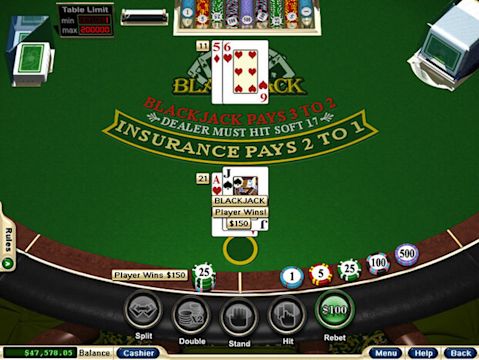- A daring journey awaits as you navigate challenges in the exciting world of chicken road game, where every moment counts towards your win.
- Understanding the Mechanics of the Chicken Road Game
- The Role of Strategy in Winning
- The Psychology of Risk and Reward
- Common Mistakes to Avoid
- The Social Aspects of the Game
- Building a Winning Community
- Life Lessons from the Chicken Road Game
- Why Timing is King
The world of gaming offers thrilling experiences, and one of the most intriguing is the chicken road game. This game allows players to embark on an exciting journey, where the stakes rise with each step, creating tension and excitement. As players navigate through various challenges, they must be cautious and strategic, ensuring that they know when to advance and when to hold back to avoid pitfalls. The allure of potential victory drives players to take risks, but understanding timing is crucial to achieving success.
At its core, the chicken road game embodies a unique blend of strategy, luck, and timing. Players must carefully weigh their decisions, as each action can lead to potential rewards or detrimental setbacks. The game challenges participants to face fears, confront obstacles, and seize opportunities. What makes it even more engaging is the ever-increasing potential for rewards that rise with each successful step, urging players onward.
In this article, we will explore the various elements that make the chicken road game so captivating. We will discuss the mechanics behind the game, strategies that can enhance performance, and the psychological aspects of risk-taking. From the excitement of increasing winnings to the importance of timing in decision-making, every aspect is crucial to mastering this game.
Additionally, we will delve into the social dynamics of the game, as players often find themselves sharing their experiences with others, creating a sense of community around the game. This interaction not only enhances the gameplay but also fosters camaraderie. Furthermore, we will examine how the chicken road game can serve as a metaphor for life, illustrating the importance of making informed decisions and knowing when to stop.
As we embark on this journey through the fascinating world of the chicken road game, we invite you to explore its intricate layers and discover strategies that can lead you to victory. Join us as we navigate the road filled with obstacles and opportunities, where every moment counts, and every decision shapes the outcome.
Understanding the Mechanics of the Chicken Road Game
The chicken road game is designed to engage players in an interactive and thought-provoking experience. It operates on a simple premise: the player guides a chicken along a path filled with traps and rewards. The aim is to advance further down the road while maximizing potential winnings and minimizing risks. Each decision made during the game holds weight, as advancing further increases the stakes.
To fully appreciate the mechanics, it’s essential to understand how players earn points and the various checkpoints that determine their progress. Players accumulate points based on their ability to navigate through challenges without falling into traps. Each successful step up the road equates to an increase in potential rewards. The game encourages players to keep pushing forward, but at what cost?
| Chicken | The main character that the player controls through the game. |
| Traps | Obstacles on the road that can cause the player to lose points. |
| Checkpoints | Milestones that offer rewards and reset the player’s score on reaching them. |
| Rewards | Points that players earn for each successful maneuver past traps. |
The Role of Strategy in Winning
Success in the chicken road game is heavily reliant on the player’s strategy. Developing a sound approach involves evaluating the risks associated with advancing further down the road. Players must determine how far they are willing to go before stopping to collect their winnings. This decision-making skill is crucial, as players often face temptations to take unnecessary risks that may lead to failures.
A strategic mindset allows players to assess each trap meticulously. Understanding patterns and anticipating obstacles can significantly improve a player’s success rate. Additionally, players should consider the timing of their moves. Knowing when to advance quickly and when to take a step back can be the difference between winning and losing.
Moreover, observing other players can provide insights into different strategies that may work. For many, learning from each gameplay experience offers valuable lessons about risk assessment and decision-making. Exploring various strategies enhances the experience and allows players to grow stronger in their gameplay.
The Psychology of Risk and Reward
The chicken road game exemplifies the psychological interplay between risk and reward. Players often find themselves in a constant battle between the desire for more points and the fear of losing what they have already accumulated. This internal struggle reflects the thrill and danger of gambling, where each moment can lead to potential loss or gain.
Understanding the emotional aspects of playing can significantly impact a player’s performance. Those who maintain a clear head during tense moments are more likely to make rational decisions instead of succumbing to impulse. Emotional intelligence can be a game-changer, as it helps maintain focus and anticipation, allowing players to respond strategically.
- Emotional Control: Managing feelings of excitement or frustration can lead to better decision-making.
- Anticipation: Anticipating potential pitfalls helps players navigate the game more efficiently.
- Confidence: Believing in one’s ability to make good choices improves overall gameplay and performance.
Common Mistakes to Avoid
As players engage in the chicken road game, various common mistakes can hinder their success. Awareness of these pitfalls helps players navigate the game more effectively. First, overconfidence can become dangerous; players may become reckless in pursuit of higher points and neglect to consider potential traps.
Additionally, playing without a strategy may lead to erratic decision-making, where players make impulsive choices. Establishing a clear plan can help players mitigate risks and understand when it’s time to stop. Finally, failing to observe the gameplay dynamics of others can limit growth, as learning from experienced players can provide valuable insights.
The Social Aspects of the Game
The chicken road game, like many gaming experiences, fosters a sense of community among players. Sharing the journey with others enhances the overall experience as players can discuss strategies, share stories, and even compete against each other. This social interaction creates an engaging environment that drives participants to improve their skills continually.
Whether played in person or online, camaraderie among players can nurture relationships and forge new friendships. A communal environment makes the challenges of the game less daunting and more enjoyable. Players may find motivation in the support of friends, making the journey together a memorable adventure.
Additionally, organized tournaments or friendly competitions can raise excitement levels among players. Structured gameplay not only intensifies competition but also allows participants to showcase their skills. The thrill of competing further emphasizes the role that social connections play in enhancing the chicken road game experience.
Building a Winning Community
Creating a positive community around the chicken road game involves fostering an inclusive and supportive atmosphere. This can encourage players to share their experiences, strategies, and advice. It’s essential for participants to feel valued and recognized for their contributions, as this generates enthusiasm and motivates others to engage positively.
Establishing platforms for feedback and open discussions can further enhance the community experience. Whether through forums, social media, or gaming events, sharing insights and lessons learned can strengthen bonds among players. The journey through the game becomes richer when individuals come together to uplift and inspire each other.
Life Lessons from the Chicken Road Game
The chicken road game serves as a powerful metaphor for real-life decisions and challenges. Players become acutely aware of the consequences that come with each choice they make along the way, echoing the importance of calculated risk-taking in everyday life. It’s about understanding that while the thrill of gains may tempt one to push further, knowing when to stop is equally important.
This game encourages a reflection on broader life themes, such as patience, humility, and strategic thinking. Just as players must learn to manage their gameplay, individuals can apply similar principles in various aspects of life, be it career choices, personal relationships, or financial decisions.
- Assessing Risk: Understand the risks before making a decision.
- Setting Limits: Learn to stop when ahead to avoid losing what has been gained.
- Building Resilience: Accept that not every journey will end in success, and adapt accordingly.
Why Timing is King
The theme of timing resonates throughout the chicken road game. It highlights how crucial it is to be deliberate and mindful of the decisions we make and the moments we choose to act. Recognizing the right moment to advance or retreat becomes a skill honed through practice and experience.
Players often find that striking the perfect balance between ambition and caution is vital to navigating the challenges ahead. By mastering the timing of their moves, players can maximize their gains and maintain a sense of control throughout their journey.
Ultimately, the chicken road game serves as a thrilling reminder of the importance of preparation, awareness, and decisiveness. By drawing parallels between this engaging game and life itself, we gain insight into our behaviors and the impact of our choices on our journey.
Through exploration of the various dimensions of the chicken road game, we appreciate how it encompasses strategy, risk management, and social interaction. With the skills gained from playing, players can understand the deeper connections to life’s multifaceted challenges. The ability to recognize opportunities and make informed decisions is essential, and this game provides an opportunity to hone those skills in a fun, engaging way.























